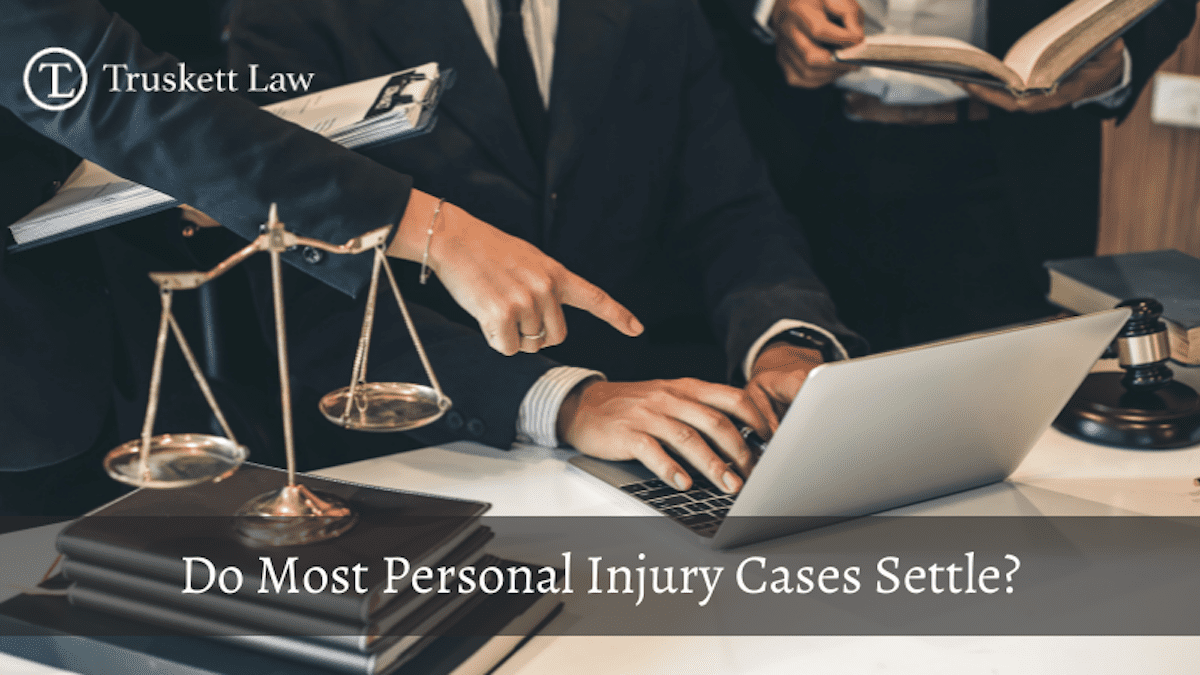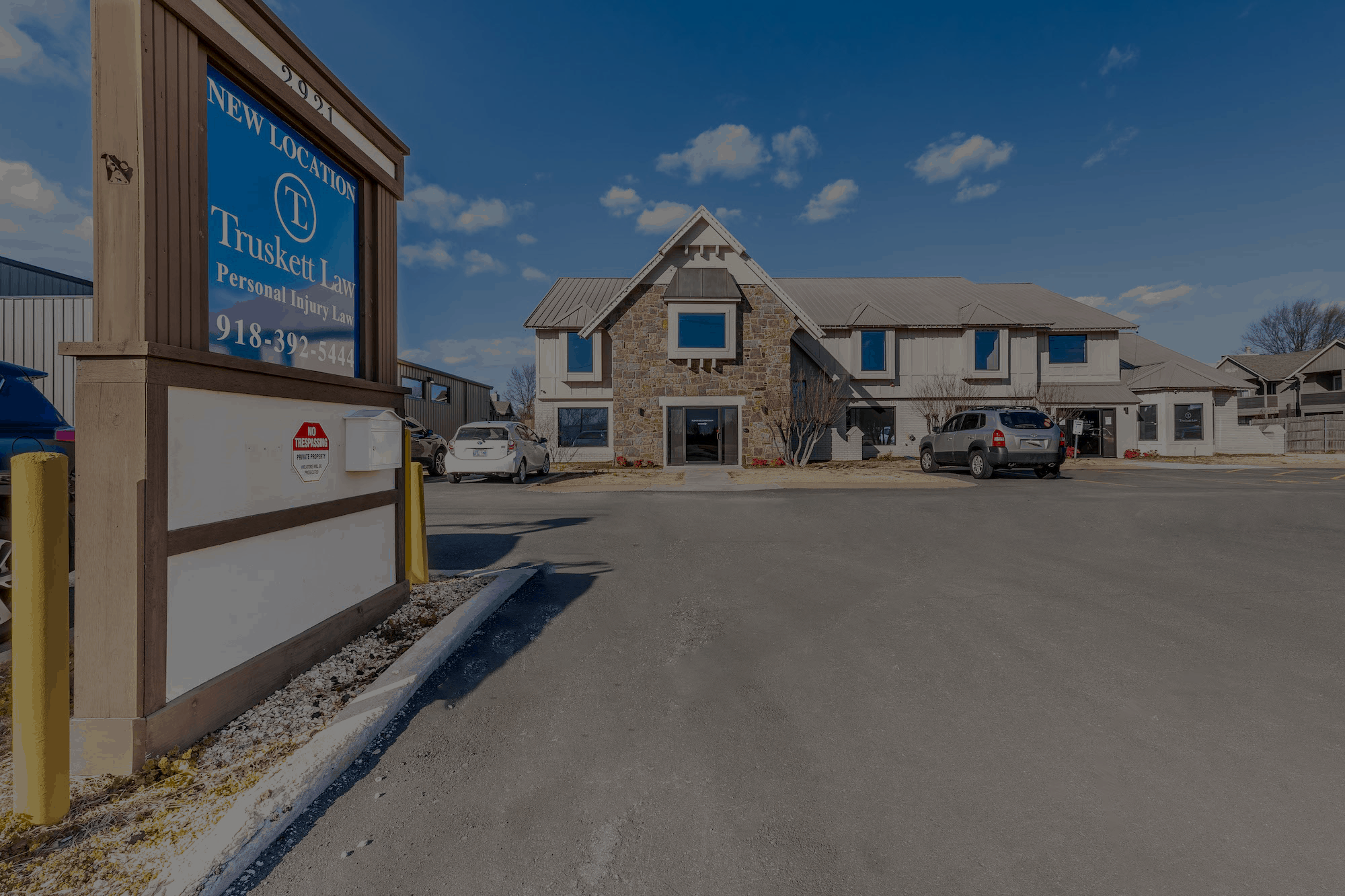
02 Feb Do Most Personal Injury Cases Settle?
How Many Personal Injury Cases Settle
Are you curious about how many personal injury cases are settled vs. the number that goes to trial? Settlement rates are much higher than trial rates. This doesn’t necessarily mean that more people are receiving large settlement payouts – it just means that more cases are being settled instead of going to trial.
So, do most personal injury cases settle? Personal injury cases can go either way, but the odds are even higher for a settlement because people want to avoid trials and lawyers know this. If you have questions about your case or would like legal representation, contact an experienced personal injury attorney today to schedule a free consultation.
Keep reading to learn more!
Is Settlement Better Than Going to Trial?
 Settling a case is always best for both parties involved in the dispute. The reason why some cases settle while others go to trial is complicated and it can be difficult to predict at first whether a case will settle or not. Here’s what you should know about how many personal injury cases settle.
Settling a case is always best for both parties involved in the dispute. The reason why some cases settle while others go to trial is complicated and it can be difficult to predict at first whether a case will settle or not. Here’s what you should know about how many personal injury cases settle.
Injury cases are often susceptible to a settlement because both the plaintiff and the defendant have a lot to gain from reaching an agreement, rather than going through with a full-blown trial.
If you have been injured due to someone else’s irresponsibility, then you will likely want that person to cover your medical bills, pay you for lost wages and pay for the pain and suffering that they have inflicted upon you.
On the other hand, if you are being sued because of another person’s injuries (i.e. you rear-ended someone with your car or otherwise harmed them), then settling is often in your best interest as well because trials can be financially draining. It is even possible that the plaintiff may drop the case altogether if you offer a reasonable settlement, which results in a win-win for both parties.
What Causes a Case to Be Settled?
Settlements are especially common when there is a lot at stake financially. When a person faces years of medical bills and has very little chance of being able to work, it may be in their best interest to accept a settlement offer from the defendant. This is because the costs of going through a trial and hiring an attorney will likely be much higher than agreeing to settle.
On the other hand, it’s not all about money. Some people feel that personal injury cases need to go to trial so that justice can truly be served and the parties’ stories can be told and fully understood. When this happens, a judge or jury will decide who is at fault and how much money (if any) the defendant should pay to the plaintiff.
Some personal injury cases do go to trial because juries often rule in favor of the victim when they know that the defendant is at fault for the harm that was caused. In these cases, a judge or jury will be responsible for determining whether the defendant is liable and, if so, what damages they must pay to the plaintiff.
How Many Personal Injury Cases Settle?
The number of personal injury settlements versus trials depends on several factors such as:
- The injuries suffered
- The amount at stake financially
- Whether or not the defendant is liable for the injuries
- Whether or not the plaintiff has an attorney representing them in court Settlement rates vary from case to case and from state to state. Take a look at how settlement numbers add up in some states: Personal injury settlements vs. jury verdicts by state
When most people think about personal injury cases, they tend to think of them ending up in court. This is probably because the media often portrays personal injury cases ending in trials. After all, many movies show this having occurred.
What Are the Possible Personal Injury Outcomes?
 Personal injury lawsuits can be concluded in three ways. The first is mediation, which involves the parties meeting with a neutral third party who helps them develop settlement options.
Personal injury lawsuits can be concluded in three ways. The first is mediation, which involves the parties meeting with a neutral third party who helps them develop settlement options.
This is typically less formal than arbitration. It allows room for creative solutions that may not be available through arbitration or litigation.
Arbitration is generally much faster than litigation for settling disputes, but not everyone is comfortable with this private, quasi-judicial process. The third option for settling a personal injury case is litigation, which can be expensive and time-consuming.
Many legal systems have recognized that settlements are preferable to bringing matters through the court system, especially when they are reached by people representing themselves without the benefit of legal counsel.
Research regarding personal injury cases that are litigated or settled confirms that most claims are resolved outside of court. According to the Canadian Institute for Health Information, more than 90 percent of claimants received financial compensation through a negotiated settlement. The remaining claims that do go to court are generally less complicated and involve minimal damages or medical costs.
Percentage of Cases That Settle Before Trial
Most personal injury cases settle before trial. 95% of all civil lawsuits that are filed are settled. About 4% of the plaintiff’s total lawsuit awards come from those that go to trial and less than 1% of personal litigation cases have a contested jury verdict.
It is said that most people that are hurt in an accident or incident or suffer injuries because of the negligence of another person do not end up filing a personal injury lawsuit. Of those that file, about 6 out of 10 cases are settled before trial.
What Are Some Reasons Why Most Personal Injury Cases Settle?
Personal injury suits can be difficult to prove and can take years to resolve. That is why many plaintiffs and their legal representation will settle the case before it goes to trial. About 50% of all personal injury lawsuits settle because the defendant offers a settlement.
The plaintiff might not like or agree with the settlement, but they can’t turn down an offer that fits what they were looking for in litigation damages. The other 50% of cases settle just because the parties reach an agreement and both sides feel that it is best to move on.
What About Large Personal Injury Cases?
Very large personal injury lawsuits – such as those involving defective drugs, fires, crashes, etc. – do go to trial in a small percentage of cases. Since these cases can involve large awards, lawyers on both sides will fight until they reach the end. The majority of personal injury defendants will try to settle out of court.
However, after going through discovery and depositions, sometimes both parties might feel that it is best to let a judge or jury decide how much the defendant has to pay the plaintiff.
What Are Some of the Most Common Types of Personal Injury Cases?
 The most common types of personal injury cases are medical malpractice, car accidents, truck accidents, motorcycle accidents, product liability, toxic torts, and workplace injuries.
The most common types of personal injury cases are medical malpractice, car accidents, truck accidents, motorcycle accidents, product liability, toxic torts, and workplace injuries.
These cases account for about 95% of all new lawsuits filed in court. Of those, there are product liability cases and medical malpractice cases that settle more than any other type of litigation.
Most personal injury cases stem from a car accident or truck accident because many people lead very busy lives these days and it can be difficult to avoid getting into an accident when you have so much going on.
Because there are so many causes of car and truck accidents, there is a large variety of potential cases that can be made against the defendant.
About 3 out of every 10 personal injury lawsuits are filed for on-the-job injuries, such as those suffered by construction workers, roofers, and other laborers.
Many people depend on their jobs as a source of income to support their families. When they are killed or injured on the job, they depend on their legal representation to help them receive compensation for lost wages and other damages by filing a work injury claim against their employer.


Sorry, the comment form is closed at this time.